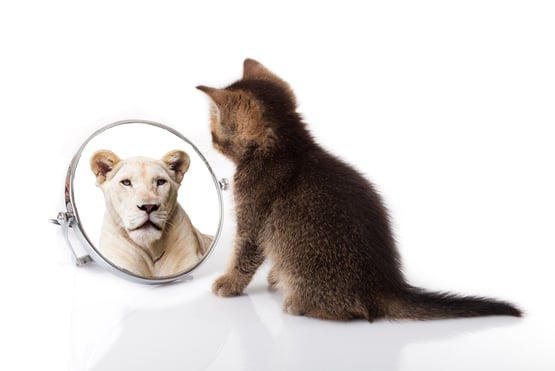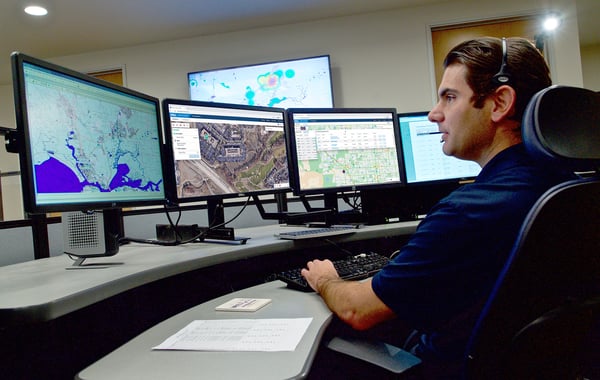Meet the New ZOLL Dispatch and ZOLL Respond CAD Solution
Changing EMS Leadership into Lionship
(6 min read) Take a moment and reflect on two very fundamental questions you should ask yourself as a leader in EMS

(6 min read) Take a moment and reflect on two very fundamental questions you should ask yourself as a leader in EMS. First, why did you get into EMS? There was something that drew you into this “business,” and it surely wasn't money or fame. What is your WHY? Secondly, perhaps nearly as important as your why, what has been your most significant leadership failure? We all have them. If we don’t, we are not genuinely leading because we are not taking risks. In EMS, we have been perfecting an imperfect leadership model since 1967. The famous “White Paper” published by the National Academy of Sciences gave us a direction to go with modern EMS, but never addressed the issues that we would face fifty years later. Honestly, I am sure these issues could not have even been imagined.

One of the biggest failures in EMS is that we have never really developed our own leadership style. As EMS providers, we tend to be more reactionary than proactive. We have become sheep in a leadership world full of lions. We have never invested in leadership training as a group and succession planning is most often an afterthought. Generally, we simply promote from within our ranks based on an awkward combination of:
Who's been here the longest?
Who is clinically strong?
Who is willing to do the job?'
Yes, some agencies invest heavily in their leadership, but these agencies tend to be either large fire-based services with massive budgets or corporate EMS providers with large budgets. Even in those agencies, you only see leadership training in the top tiers, not lower and middle management and definitely not at the local level.
At the local level, we generally see managers instead of leaders. Don't get me wrong – we need managers. Managers keep us on task, mind the budget, and balance the metrics. Managers keep the trucks staffed, stocked and out on the streets doing the daily business of EMS. Managers are the herding dogs of the EMS world. What managers don't do is provide authentic leadership. Leaders are visionary souls that look beyond the daily metrics.
Leadership is embodied in the image of a lion standing before his pride, mane blowing in the wind, exuding confidence and the bravery required to make hard choices.
A true leader must have a vision for the company. They must be able to see in their mind’s eye how the organization will evolve over the next five, ten, or even fifty years. They don't have time for the status quo. Leaders take problems and turn them into opportunities for improvement in the future. They connect with the emotional needs and well-being of their followers by establishing a safe and just work environment. In this culture, you can speak your mind and feel secure that you won't be ridiculed or embarrassed for having an out of the box, crazy idea.
Unfortunately, after years of scraping to get to the top of the food chain and lead their organizations, many are disillusioned by the struggles and hardships associated with leadership. All too often, these leaders become toxic to the work environment. To remain in their positions, they will use the success of others to promote themselves, and blame their failures on others. We need to be able to identify these toxic leaders and intercede before the dysfunction infects the entire pride.

One of the most noticeable signs that there is an issue is often turnover in our ranks. As the saying goes, “People don’t leave bad jobs; they leave bad bosses.” In today’s society and with an increased awareness of individual self-worth and self-care, employees, when given an opportunity, will leave those environments willingly and without hesitation.
In the era of traditional top-down hierarchical leadership, with a high reliance on slim metrics and keeping our FTEs as low as possible many organizations have become very lean on supervisory positions and maintain large disengaged teams. An unfortunate side effect of this has been organizations losing situational awareness and the ability to respond effectively and promptly when things begin to go south. As an organization, it is imperative that we walk that tightrope of balancing leadership presence and fiduciary conservatism. Often when trying to save a dollar on the front side, we lose millions on the backside.
When a toxic work environment develops, employees suffer, which in turn means that patients suffer. When you combine a high-stress job with a toxic work environment, you see increased job loss, divorce rates, drug and alcohol abuse rates, and even depression and suicide.
In education, we engage our emotional intelligence to “flip the classroom.” In leadership; we need to “flip the script.” We need to lead through the eyes, hearts, and souls of our employees. Often called servant leadership, we as leaders need to become more self-aware, humbler, and trusting of our employees. We need to learn to coach and mentor through failures so that they can become successful in the future, not punish them so that they are afraid to react in the future. We need to use our emotional intelligence to connect with the people we have chosen to surround us to help reach our vision.
As EMS providers, we are all hardwired to serve others. Not many of us answered that first question “I got into EMS for fame and fortune.” I would argue that almost all of us started here with a desire to serve others. The metrics and the hierarchy will never go away. We need them to measure progress and to ensure the safety of our patients. But we can become more in tune with our employees and provide them what they need to be healthier, safer, and more productive. When we do, they will return the favor by being more productive, engaged employees.

Ultimately leadership is about a mutual respect. On one side, leaders must respect their followers, trusting that they have the abilities to take the company forward towards their vision. On the other, followers must respect their leader, trusting that they will guide them, develop them, and protect them. In this aspect, a well-run EMS agency resembles a lion pride. The leader will educate, guide, and protect the followers, much like the dominant lion will teach the young to hunt and feed the pride, and protect that same pride when danger is near. The pride will respect and honor their leader for their service and guidance. In turn, as the pride members learn to hunt and protect, the dominant lion will rest assured as he ages, and can no longer tend to his pride, that it will be well cared for by the generations that he has struggled to train and mentor over the years.
It is time we in EMS turn Leadership into Lionship. Although the lion is a member of the pride, the lion is often alone at the top as they protect their pride from the dangers of the outside world. The “the king of the beasts” usually sits overseeing his pride to ensure their safety and well-being. He encourages the pride to hunt and feed together and is brave in the times of adversity and will fight to protect his pride from danger, so that they may always feel safe.
As a leader, you are a member of a group. You have followers that depend upon your knowledge and expertise. You may often feel alone or isolated, but if you protect your pride, they will protect you. If you are brave in the face of adversity, your pride will stand behind you when the times are tough. If you can lead your pride with vision and provide them with safety and security, your pride will not only stand behind you and support you, they will believe in your vision and work to help fulfill it.
To succeed together, you must fail together, and you must pick one another up. As leaders, we are here to provide a vision for our followers, and to provide them with the tools for their own success. Leaders do not lead for themselves. As the dominant male lion grooms his future successor in his pride, we as leaders must groom and mentor our future successors to be even better leaders than we are so that our pride, and the future prides that spring from ours, will be our legacy many years after we have gone.
Related Posts
Collect More Revenue Faster: The Pivotal Role of Clear, Concise, and Complete Documentation
ZOLL Pulse Blog
Subscribe to our blog and receive quality content that makes your job as an EMS & fire, hospital, or AR professional easier.
ZOLL Pulse Blog
Subscribe to our blog and receive quality content that makes your job as an EMS, fire, hospital, or AR professional easier.




